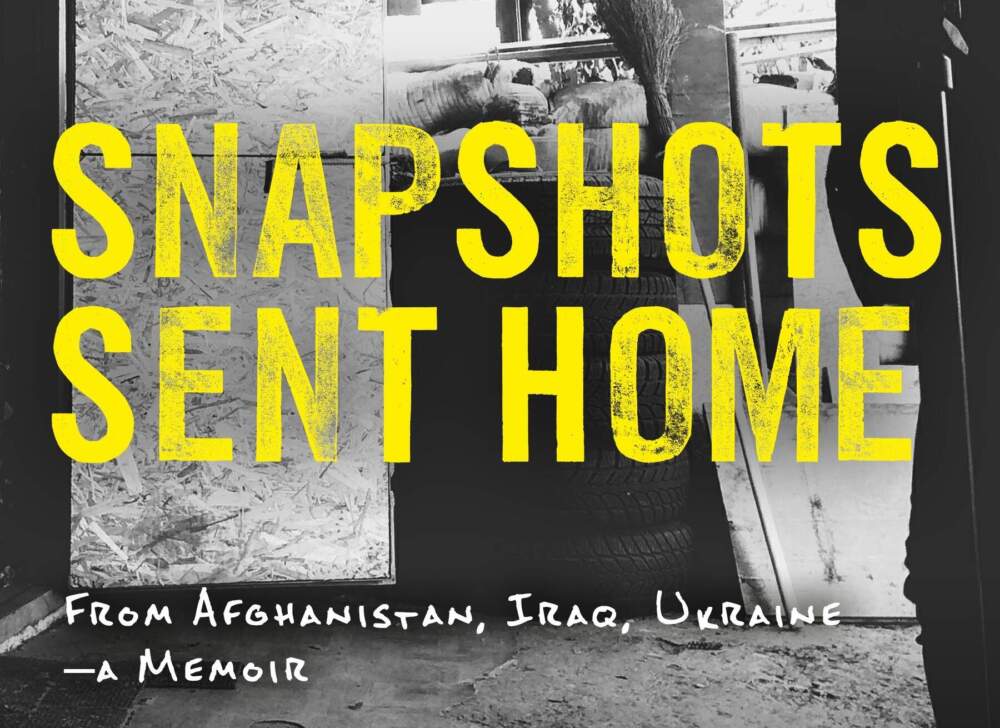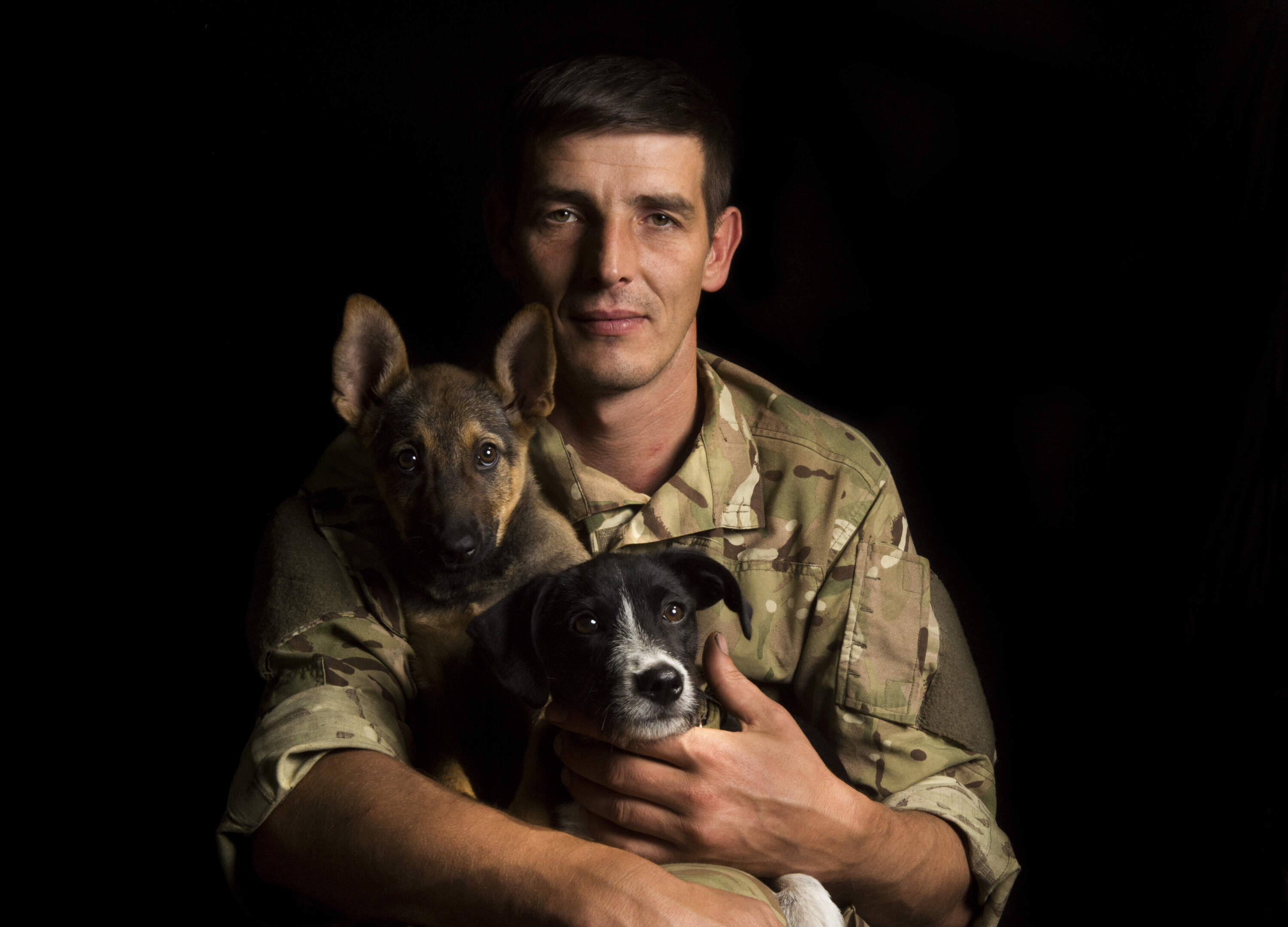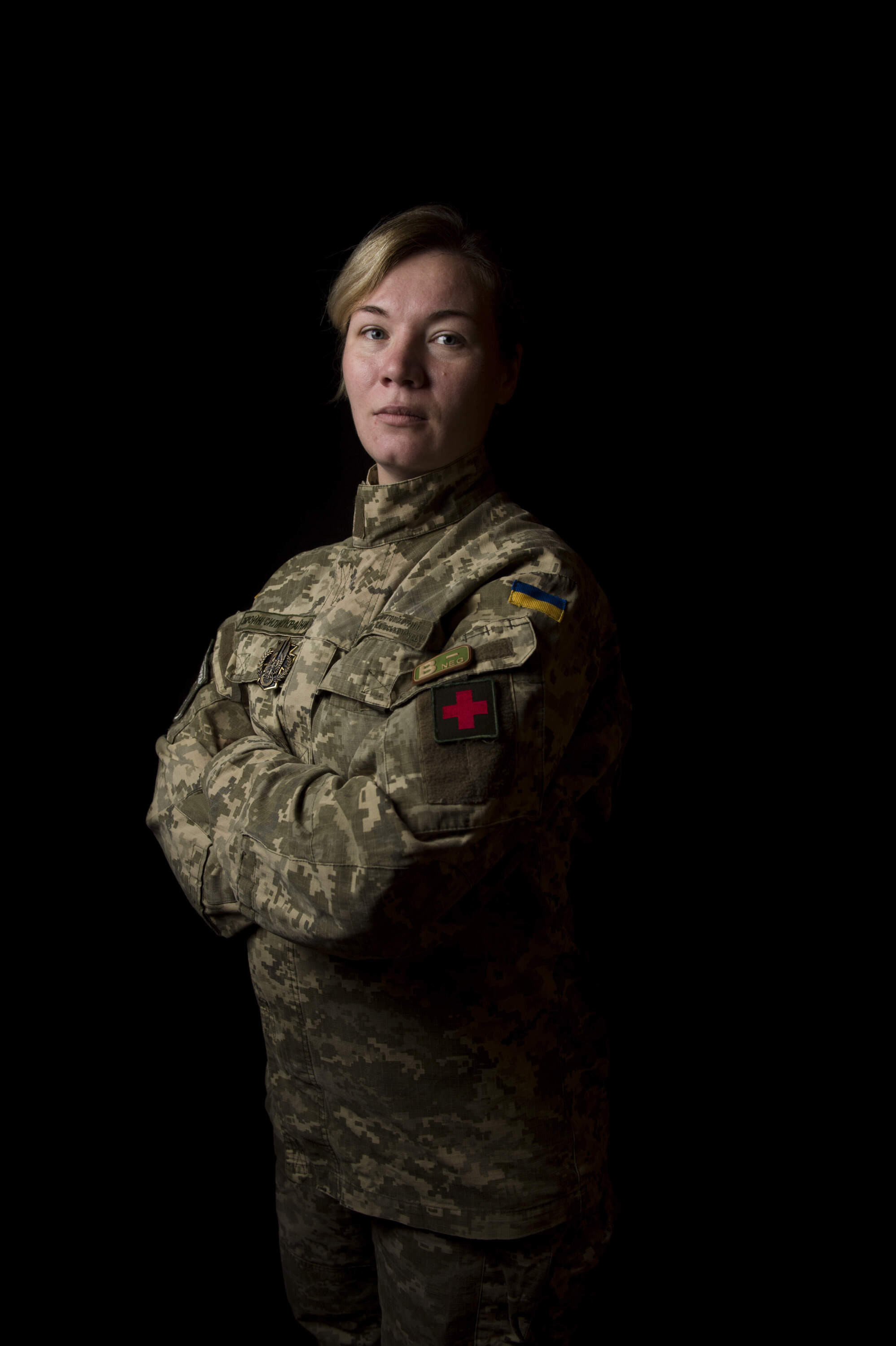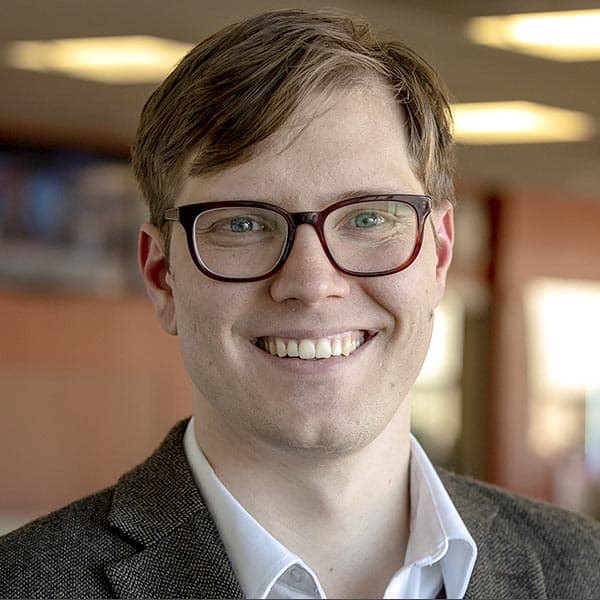Advertisement
'Snapshots Sent Home' focuses on Ukraine and the bond shared by war veterans
Resume
When the U.S. Military Academy recruited J.T. Blatty to play tennis, she never imagined going to war. Then 9/11 happened.
Then 23-year-old Blatty served combat missions in both Afghanistan and Iraq. She remembers the fear and uncertainty that plagued her and other members of her platoon, but also the sense of camaraderie she felt with other service members.
“I wasn't prepared,” she says. “There was just no imagining possibly dying in war. We just weren't prepared for that. It wasn't my mindset.”
Blatty chose to return to war in 2018, this time without a weapon. Armed only with her camera, she traveled to Ukraine where a conflict had been brewing for years.
In 2014, the Maidan Revolution began as Ukrainians protested their government’s close ties to Russia. That same year, Russian President Vladamir Putin annexed Crimea and a stalemate battle for the Donbas region of Ukraine began. In 2022, Putin launched a full-scale invasion into Ukraine.
On the front lines, Blatty took portraits of the volunteer soldiers who rushed to defend their country. Blatty says she felt a kinship with these soldiers even though they came from drastically different backgrounds. Unlike U.S. service members, these volunteers were not paid or obligated by the government to serve.
“These people were fighting for something real, like a war on their own border,” Blatty says, “something that we don't really have any connection to what it feels like to be attacked on our own soil, except for those who remember 9/11.”
She details her time in Ukraine and the people she met in her new memoir “Snapshots Sent Home.” Blatty followed many of her subjects for years.
“I followed these revolutionaries walking alongside them as they move to and from the frontline to peace life,” Blatty writes in the book. “I've laughed with them, cried with them, drank far too much alcohol with them, raised glasses in memory with them.”

"I am still good towards the Russians. They are people like us, normal people, even the military. A Russian soldier is given an order, it’s his job, he obeys it and leaves to execute it. If he denies obeying, he will go to jail. These soldiers have families, children, they understand they have no choice because they chose to be military men. There are problems with those who give orders, not with the people who execute them.”
— Valerii “Schumacher” Vlasov, 2019 oral history recording

“I love my country, I love my Ukraine, but sometimes I think about the future, my son, and even I think about leaving. It’s scary to think about, that those like us we who went to Maidan and who went to the war in the beginning, who fought from the soul, from our hearts, that we can think like this, about leaving Ukraine. Because then what were we fighting for? What did my friends’ die for, all the children, the women, and the men, for what? We are waiting. But if nothing changes, we will consider leaving. Because I don’t want my children living in Ukraine when have no rights, social protection and justice, true law.”
— Yevhenia “Eva” Yanchenko, 2018 oral history recording
James Perkins Mastromarino produced and edited this interview for broadcast with Micaela Rodriguez. Grace Griffin adapted it for the web.
This segment aired on February 21, 2024.

